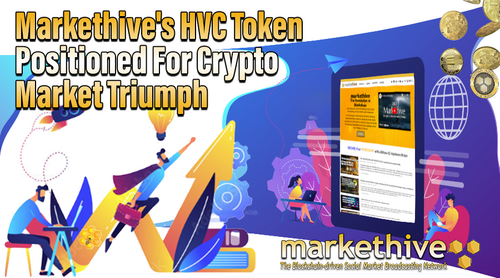


Image Source: Pixabay
Someone Sent $1.2 Million in Bitcoin to Satoshi's Wallet—Why?
Theories have abounded as to the mystery payer’s identity, with some more plausible than others.
On Friday, an unidentified crypto wallet with no previous transaction history sent 26.92 BTC—worth some $1.26 million at writing—to the Bitcoin “Genesis” wallet, which Satoshi used to mine the first-ever Bitcoin block on January 3, 2009. The BTC sent by the wallet was transferred over from a Binance account.
Crypto users routinely send Bitcoin to the Genesis wallet as a form of honorific tribute to the cryptocurrency’s mysterious founder. Yesterday, for example, the address received 15 separate payments. And Friday’s payment indeed came just two days after the 15 year anniversary of the Genesis block.
But such transactions are typically miniscule, ranging from a few cents to a few dollars. To send over a million dollars worth of BTC to a wallet that no one but Satoshi likely controls certainly constituted a bizarre occurrence, one that many crypto users spent the weekend pondering. Read More
Wemix blockchain to cease block minting rewards
Token rewards will instead be distributed from Wemix Foundation's digital wallets.
South Korean gaming blockchain Wemix, whose WEMIX token has a diluted market cap of $2.6 billion at the time of publication, will discontinue block minting rewards “to further solidify the fundamentals and practical aspects of WEMIX tokenomics.”
According to the Jan. 9 announcement, the total supply of WEMIX “will either remain fixed or be reduced from the block height in which the discontinuation of block minting rewards is implemented” by the end of Q1 2024.
Before the announcement, the WEMIX token had an annual inflation rate of 3.15%. Wemix said it is committed to “achieving a deflationary economy” by removing block minting rewards and the token burn of gas fees used on the network.
Instead of block minting rewards, the blockchain will distribute WEMIX tokens held by the Wemix Foundation as incentives for the community and its decentralized application developers. “This distribution method can be sustained for approximately 20 years,” it claimed. Read More
Bitcoin blockchain hosts classic SNES games
Ninjalerts CEO Trevor Owens argued that Bitcoin is the best place to preserve “cultural digital artifacts” for future generations.
Developers at the Bitcoin Ordinals portfolio tracker Ninjalerts have inscribed the Super Nintendo Entertainment System (SNES) emulator on a satoshi, allowing the community to play classic games on the Bitcoin network.
In an X (formerly Twitter) thread, Ninjalerts CEO Trevor Owens explained that it took six months to customize the emulator to work on all marketplaces and explorers. He wrote, “If the Laser Eyes are gonna host all our JPEGs forever, at least now they can play games!”
According to Owens, the effort to inscribe SNES on the blockchain was made to address the issue of the preservation of classic video games. Citing a study concluding that 90% of classic video games are critically endangered, Owens argued that Bitcoin is the best place to preserve these “cultural digital artifacts” for future generations. Read More
Game On: The Hottest Upcoming Gaming Token Airdrops
UPDATED: The Xai airdrop on Arbitrum is live, while Pixels and Saga have revealed new details and Notcoin is teasing a token drop.
Airdrop season is in full swing, with apps, protocols, and other projects seizing upon signs of an impending bear market to finally drop their tokens—and potentially reward millions of crypto users in the process.
What exactly is an airdrop, though? When it comes to crypto tokens, an airdrop is typically a way for a project to reward its early users and contributors by giving them a share of a newly launched token, all while spreading the tokens far and wide for decentralized governance.
When it comes to blockchain networks and tokens primed specifically for gaming, there are some pretty compelling airdrops on the horizon in the months ahead. Here’s a look at what’s coming for gamers—there may still be time to get involved and score some tokens ahead. Read More

As the crypto industry gears up for the next bull run, Markethive isn't just sitting on the sidelines – it's rolling up its sleeves and diving into the action, poised to shine on the high-performance stage of the Solana blockchain. At the heart of this venture is Markethive's native cryptocurrency, Hivecoin (HVC), a key player ready to unlock the industry's full potential. Solana's reputation for speed and scalability provides the perfect playground for Markethive's ambitious goals.
Cryptocurrency and blockchain have shaken the business world, creating a new era of possibilities. And Markethive? Well, it's not trailing behind; in fact, it's leading the charge. This unique platform, grounded in blockchain technology, caters to entrepreneurs, marketers, and business owners, offering them a suite of tools and services to navigate this brave new world.
Now, to make things even more exciting, Markethive has introduced the HVC into the mix. This token isn't just any token; it's intricately woven into the fabric of Markethive's ecosystem. And guess what? It's riding the Solana blockchain wave. Why does that matter? Buckle up because we're about to dive into the juicy details of why this move is a game-changer.
Ready to uncover the magic behind Markethive's strategic choice? Let's jump into the discussion and explore the manifold benefits of having the HVC token on the Solana blockchain. Read More
NFTs, Memecoins and Six Other Topics To Drive Crypto Markets in 2024, According to Analytics Firm
Blockchain analytics platform Santiment is listing the major narratives that are likely to prevail in the crypto space this year.
Starting with non-fungible tokens (NFTs) and memecoins, Santiment says that the two crypto sub-sectors are “always primed for a sudden surge of interest.”
As an example, Santiment says that the rise in interest in the Bonk (BONK) memecoin preceded the massive price surge of Ethereum (ETH) rival Solana (SOL). BONK is a relatively new meme crypto built on Solana.
Santiment goes on to say that a surge in interest toward memecoins tends to be a signal that an existing rally in the crypto markets may be coming to an end. Read More
Binance Supports Optimism (OP) Network Upgrade and Hard Fork
Binance, one of the largest cryptocurrency exchanges in the world, has announced its support for the upcoming network upgrade and hard fork of the Optimism (OP) network. This strategic move by Binance is aimed at providing its users with an enhanced experience and maintaining its position as a leader in the crypto exchange domain.
Optimism, a Layer 2 scaling solution for Ethereum, is designed to enhance transaction speeds and reduce costs, thereby improving the overall usability of the Ethereum blockchain. The network upgrade, known as the "Bedrock" upgrade, is expected to bring significant improvements to the Optimism network. The hard fork will enable new functionalities and optimizations that are crucial for maintaining the network's competitiveness in the rapidly evolving blockchain ecosystem.
Binance plans to suspend token recharge and withdrawal services for the Optimism network at 00:00 on January 12, 2024 (GMT+8), in preparation for the network upgrade and hard fork scheduled for 01:00 on the same day. This action demonstrates Binance's commitment to ensuring a smooth transition during the upgrade process and its continuous support for emerging technologies in the blockchain space. Read More
Nebraska and Missouri introduce Blockchain Basics Act – with more states set to follow suit
The legislatures of Nebraska and Missouri have introduced prospective bills which relate to the protection of digital assets rights – and a further 11 states are expected to bring in similar regulations in the coming year.
The Blockchain Basics Act is part of the work of the Satoshi Action Fund, a non-profit organisation whose mission is to ‘educate policymakers and regulators on the benefits of Bitcoin mining.’ The policy provides ‘protection for Bitcoin and digital assets by ensuring that the use and functions of Bitcoin and digital assets are fostered and developed’, according to the Fund, as well as ensuring that ‘technologies are able to grow and that innovation is able to flourish.’
This self-custody will allow individuals to conduct crypto mining operations in residential properties without the requirement of a licence. Read More
Degens Are Already Trading 'Bitcoin ETF' Meme Coins—On Solana
Solana traders are jumping on the Bitcoin ETF news. The meme tokens, unsurprisingly, crashed shortly thereafter.
It was all but inevitable.
Within moments of the Securities and Exchange Commission’s historic approval of a spot Bitcoin ETF in the United States, Solana degens seized on the opportunity by creating a number of ETF-themed meme coins that immediately spiked to incredible highs before beginning to deflate minutes later.
ETF, a Solana meme coin that purportedly references the ever-timely “Electric Turkey Frier,” debuted on the Solana-based automated market maker (AMM) Raydium at 4pm EST on Wednesday, the exact time an SEC decision on Bitcoin ETFs was widely expected. Once the approval was posted on the SEC’s website minutes later, the ETF token shot up an incredible 30,800%—to a valuation north of two cents. Read More
Disclaimer: These articles are provided for informational purposes only. They are not offered or intended to be used as legal, tax, investment, financial, or any other advice.